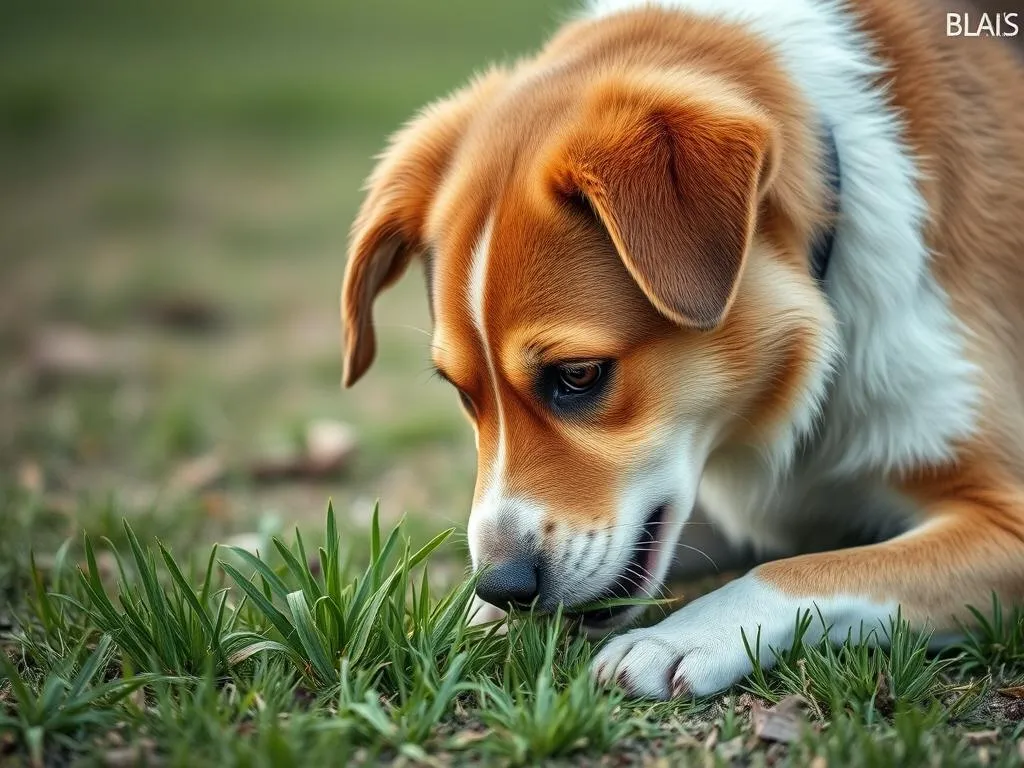
Introduction
Have you ever noticed your dog munching on grass during a walk or in the backyard? This common behavior often leaves dog owners puzzled. Why is my dog eating grass? It’s a question that many pet parents ask, and it’s a behavior observed across various dog breeds and ages. In this article, we will explore the reasons behind this seemingly peculiar habit, address common concerns, and provide insights into how to manage this behavior effectively.
Understanding Dog Behavior
The Nature of Dogs
To understand why dogs eat grass, it’s essential to recognize the nature of canines. Dogs are descendants of wolves and have retained many instinctual behaviors from their wild ancestors. Throughout the domestication process, while their living conditions have changed, many of their instincts remain intact. This means that certain behaviors, including eating grass, can be traced back to their wild roots.
Common Dog Behaviors
Dogs exhibit a wide range of behaviors, from barking to digging. Each of these actions can be linked to instinctual tendencies. For instance, barking may serve as a means of communication, while digging can be a way to create a comfortable resting place. Understanding these instinctual behaviors can help dog owners discern the motivations behind their pets’ actions, including why they might be consuming grass.
Reasons Dogs Eat Grass
Natural Instincts
One of the primary reasons dogs eat grass relates to their ancestral instincts. Wild canines often consumed the entire prey, including the stomach contents of herbivores, which included grass and plants. This behavior may be an echo of those instincts, where dogs feel a natural inclination to nibble on vegetation.
Dietary Reasons
Another factor could be dietary needs. Dogs may sometimes eat grass to address nutritional deficiencies. For instance, if a dog lacks sufficient fiber in their diet, they might turn to grass as a natural source. Some studies suggest that eating grass can help with digestion for dogs that are experiencing mild stomach discomfort or constipation.
Behavioral Reasons
Beyond instinct and diet, boredom or anxiety can also lead dogs to eat grass. Dogs are intelligent and active animals that require mental and physical stimulation. If they are left alone for extended periods or lack engaging activities, they may resort to eating grass as a way to relieve boredom or to seek attention from their owners.
Health Concerns
While many dogs eat grass without any underlying issues, it can also indicate health problems. Gastrointestinal distress, such as nausea or upset stomach, may lead a dog to eat grass as a way to induce vomiting—after all, many dogs will often vomit shortly after grass consumption. If your dog frequently displays this behavior, it’s crucial to consult a veterinarian to rule out any serious health concerns.
Is Eating Grass Harmful?
Toxicity of Grass
Most types of grass are safe for dogs to eat. However, caution is necessary. Certain grasses may be harmful, particularly if they have been treated with pesticides or herbicides. These chemicals can pose serious health risks to your dog. Always ensure that the grass your dog consumes is free of harmful substances.
Signs of Trouble
It’s essential to monitor your dog’s behavior when it comes to grass eating. If your dog exhibits signs of distress—such as vomiting, diarrhea, lethargy, or excessive drooling—after eating grass, it may indicate a problem. In such cases, it’s important to seek veterinary advice to ensure your dog’s health and well-being.
How to Manage Grass Eating
Monitoring Behavior
Observing your dog’s grass-eating habits can provide valuable insights. Keep track of how often your dog consumes grass and the context surrounding the behavior. Recording this information can be helpful for discussions with your veterinarian, who may suggest further evaluations based on patterns you observe.
Providing Alternatives
If you suspect that your dog is eating grass out of boredom or to fulfill a dietary need, consider providing alternatives. Increasing your dog’s fiber intake through vegetables like carrots or pumpkin can be beneficial. Additionally, ensuring your dog has plenty of stimulating toys and engaging activities can alleviate boredom, reducing the likelihood of grass consumption.
Consulting Professionals
If your dog’s grass-eating habit becomes excessive or is accompanied by concerning symptoms, consulting a veterinarian or a pet behaviorist is advisable. These professionals can assess your dog’s health and behavior, helping you determine the best course of action. When consulting with them, share your observations to facilitate a productive discussion.
Frequently Asked Questions (FAQs)
Is it normal for dogs to eat grass?
Yes, it’s generally considered normal behavior for dogs to eat grass. Many dogs do it occasionally without any negative consequences. However, if the behavior becomes frequent or is accompanied by distress, further investigation may be warranted.
Should I stop my dog from eating grass?
The decision to intervene depends on the frequency and context of the behavior. If your dog eats grass occasionally and shows no signs of distress, it may not be necessary to stop them. However, if grass eating becomes excessive or problematic, it’s advisable to explore the underlying reasons.
What if my dog vomits after eating grass?
Vomiting after eating grass can be a natural response for some dogs, as they may use it to relieve stomach discomfort. However, if this occurs frequently or if your dog shows other signs of illness, it’s crucial to seek veterinary help to rule out any underlying health issues.
Conclusion
In summary, understanding why is my dog eating grass involves exploring various factors, including natural instincts, dietary needs, and behavioral motivations. While occasional grass consumption is often normal, it can sometimes indicate underlying health issues that require attention. Monitoring your dog’s behavior and consulting professionals when necessary can help ensure their well-being. If you have experiences or insights related to your dog’s grass-eating habits, feel free to share in the comments below!









